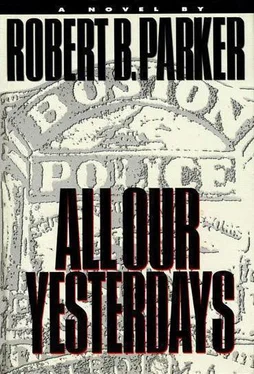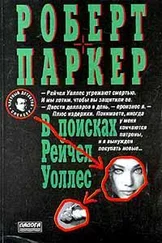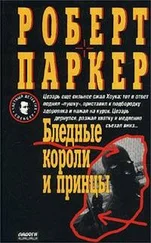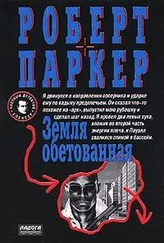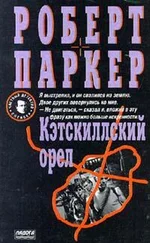Robert B. Parker
All Our Yesterdays
“And all our yesterdays have lighted fools The way to dusty death.”
Macbeth
Since this book is about fathers and
sons, and since I am a father particularly
fortunate in his sons, this book is for them,
and for their mother.
I have been strongly influenced in this work of fiction by three works of nonfiction. R. F. Foster’s gracefully told Modern Ireland: 1600–1912 gave me a broad perspective on a heritage which belongs not only to the Sheridans but to me through my mother. Ernie O’Malley’s impressionistic recollection of the troubles, On Another Man’s Wound , provided me not only incident, but, when it seemed better than any I could invent, actual language. And from Alan Lupo, in Liberty’s Chosen Home , I learned more about Boston than I wish to admit. Until I read it, I thought I knew enough.
Robert B. Parker
Cambridge, Massachusetts, 1993
It was sullen and gusty and snowing like hell when I went to see Grace. There was lightning, and thunder, and heavy wet snow collecting on the roadways. The radio weathermen were hysterical about the possibilities. It wasn’t supposed to be snowing, it was almost April, and it was supposed to be a thunderstorm.
It was about five in the evening when I parked in the lot behind Grace’s condo and got out and turned up my collar and walked to her door and rang her bell. I could feel the tension radiate from my solar plexus and jangle along the nerve circuitry. It had nothing to do with the weather.
She opened the door.
“Long time” she said.
“Six months,” I said.
She stepped away from the door and I went in. The room was opulent, like Grace. Two storied, with a huge lamp hanging down over the oval glass dinner table. Red tile in the kitchen, a spiral staircase in the far left corner leading to a sleeping loft.
“You want a drink or something?”
“Yeah, I’ll take a beer.”
She got me one.
“Trouble driving here?”
“No.”
She nodded at the couch and we went and sat on it. The snow slanted by the wind splatted against the window and melted on contact, making lucid ropes of water as it washed down the dark surface of the glass.
“Where’d you go?” Grace said.
She sat with her legs tucked under her. She was wearing blue jeans and a white sweater. Her hair was neat. She had on makeup, but not too much. Don’t want to excite Chris.
“Dublin.”
“Really?”
“Yeah. After what happened last fall I knew we couldn’t just go on as if it hadn’t happened. It was too much, too large, too awful. It was going to take more than goodwill to save us. I had to get some distance.”
“From me?”
“From me, I think, more than anything else.”
Outside, in the dark, the storm energy increased. I could hear the wind. And the snow, pelting at the window, came thicker. I was where she lived, alone with her. She slept here, made supper here, entertained here, made love, maybe, but not with me, here. There was her bathroom, where she stood naked every day under the shower. Where she put on clean lingerie and slipped into her dress. The counter where she had her coffee and left a lipstick crescent on the cup before she went to work. While I’d been gone she’d laughed here with people, told her stories, smiled her brilliant smile, held court, said smart and funny things, in the dramatic, yet somehow offhand without being less dramatic, way she had. I could smell her perfume, her shampoo, her self. My senses, so long deprived of her, were seismographic. I could almost hear her heart beat.
“So what did you do in Dublin?” Grace said.
“Studied in the old library at Trinity College, had tea at the Shelbourne, looked at the GPO, walked up O’Connell Street, drank some Guinness, had dinner at Patrick Gilbaud’s, took a tour of Kilmainham Jail, wandered around Dublin Castle, read Joyce, walked along the Liffey.”
“And what did you learn, Chris?”
“Everything,” I said.
“That’s quite a lot.”
“It’s everything, three quarters of a century bearing down on us. Too much. Too much for us.”
“And you’re going to tell me about it?”
“If you’ll listen.”
“And you think it will save us?”
“It might get us free enough to save ourselves.”
Grace got up and went to the window and looked out at the dense snow swirled by wind, and shimmered by lightning. Behind the lightning, like ancestral voices, the sound of thunder came. Grace turned back from the window toward me.
“My friends were worried you might try to kill me.”
Grace’s gaze was very steady on me. She seemed in gyroscopic balance.
“I would never hurt you,” I said.
“I know.”
She came back again to the couch and sat at the other end of it. No hint of huggy-snuggy. In proximity, we were still separate and Grace was making sure I knew it.
“But you’ve got a lot of rage.”
“I didn’t say I wouldn’t hurt anyone.”
“Do you have a plan for hurting someone?”
“A weak attempt at lightness,” I said. “I yearn for the death of anyone you date, but I would never hurt someone you cared about.”
“You already have.”
“I’m not sure I’m the one that did it, but whoever did it, it had to be done. We’d have had no chance if it hadn’t happened.”
“And you think we have one now?”
“You tell me,” I said. “You tell me there’s no chance and it’s over. I’ll get up, and go, and get on with my life.”
She looked at me for a long time in the dead-quiet room, made to seem more still by the storm roiling outside just beyond the lamplight.
“No, I won’t tell you that. We’ve been together a long time.”
I didn’t say anything. She wasn’t talking to me, really, she was thinking out loud.
“But I can’t live like we did. It’s odd, isn’t it? My connection with the man you were, makes me hope that there’s a chance for me with the man you may become. But I cannot live with the man you were.”
“God save me, I understand that,” I said.
She smiled carefully, and only a little.
“So maybe I love you, and maybe you love me, and maybe you can help me understand the awful thing that happened last fall. I’m prepared to listen. Do you want another beer?”
“No,” I said.
She nodded faintly, as if she were keeping score somewhere, and settled back a little in her corner of the couch with her legs beneath her and the gulf between us as unbridgeable as the void. I looked past her out the window at the darkness made brilliant by the momentary lightning, at the winter storm penetrating the spring night, and took in a deep breath.
“My grandfather’s name was Conn Sheridan,” I said. “He was born with the century, in Dublin, and in 1916 he got hold of a Lee-Enfield rifle, and he and another kid sniped, apparently to no significant effect, at British troops during the Easter Monday uprising. By twenty he was a captain in the IRA, maybe for the hell of it, maybe for patriotism, though it’s hard to imagine a full-feathered patriot perched up there in the Sheridan family tree. In the four years his aim improved.”
In mid Tipperary, in a pass through the hills, at the village of Hollyford, there was a long, two-storied, whitewashed police barracks with a slate roof. The windows of the barracks were protected by steel shutters, and there were narrow firing slits cut into the walls.
Conn Sheridan stood at the top of the pass, looking down. He was writing in his notebook. Below him a stream had cut its way through the hill, and a road ran along beside it. The village straggled along the road on the downslope. Thatched roofs and zinc outhouses.
Читать дальше
